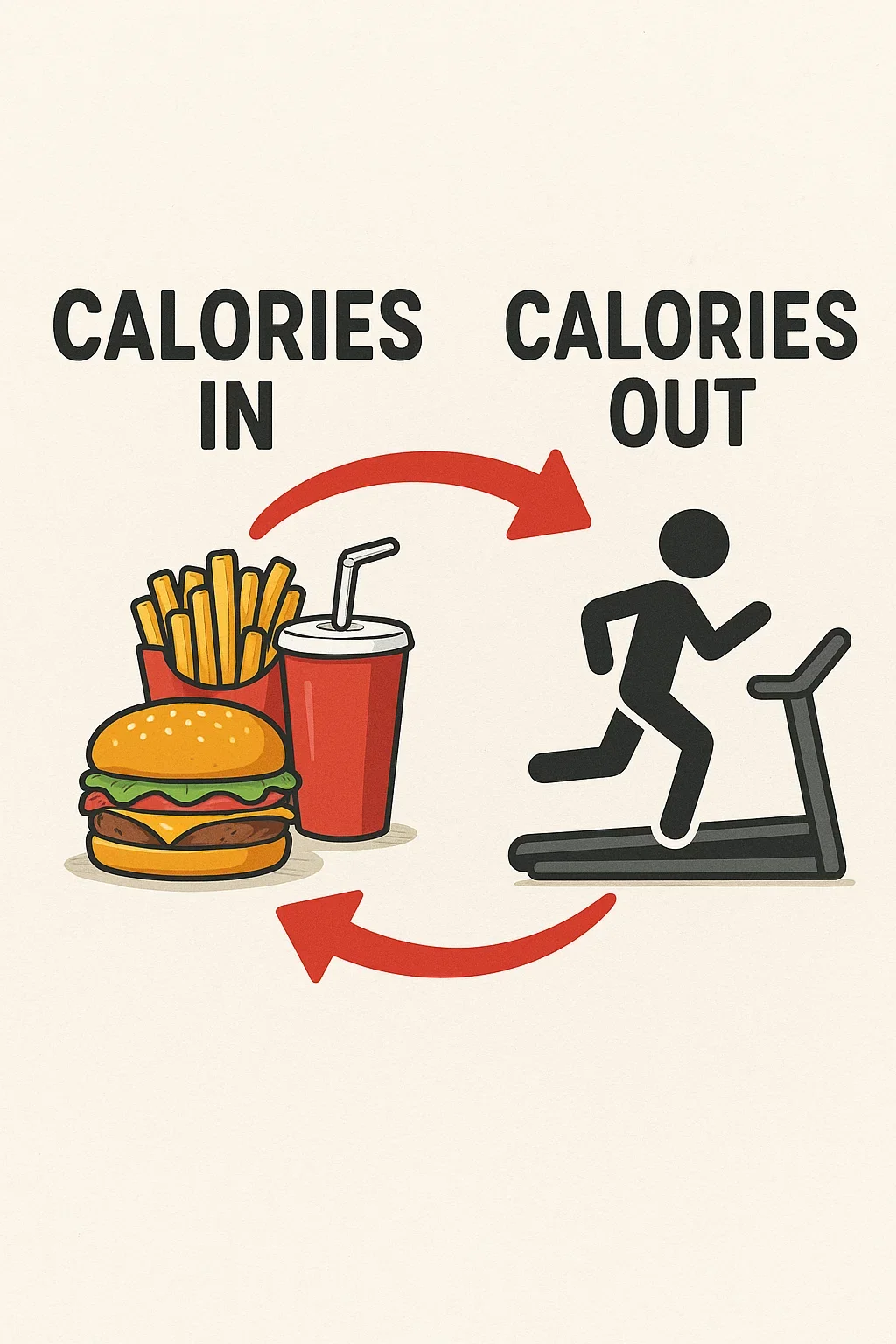Losing weight isn’t just about cutting calories — it’s about syncing your body with its natural rhythms, fueling it wisely, and creating an environment where health comes naturally. In this guide, we’ll walk through science-backed strategies like circadian rhythm alignment, smart meal timing, exercise, sleep optimization, and a few natural helpers like apple cider vinegar and hibiscus tea.
1. Reset Your Circadian Rhythm with Morning Sunlight
Your body runs on a 24-hour internal clock that governs everything from hunger to hormone release. Disrupting this circadian rhythm (think late nights, inconsistent meal timing, or screen exposure before bed) has been linked to obesity and metabolic disease. Did you know that nightshift workers are at a much higher risk for metabolic diseases like diabetes? Light is very important!
Morning sunlight helps “set” your internal clock, improving sleep quality and energy metabolism. Just 10–15 minutes outdoors in natural light can make a difference.
People with regular circadian habits have healthier weight profiles and more stable energy.
I make this a priority every day and I have indoor lights in case it is rainy or too cold/ very cloudy.
We all need to get outside more.
References:
2. Meal Timing and Intermittent Fasting
What you eat matters — but so does when you eat. Time-restricted eating (TRE) means finishing your meals within a set window (often 8–10 hours).
Early TRE (eating earlier in the day) leads to better fat loss and metabolic health than eating late.
Intermittent fasting also helps reduce inflammation, regulate blood sugar, and improve cholesterol, even when calories are the same.
Many people skip breakfast and eat just lunch and supper. Great. I like the idea of an early lunch (10-11 AM and an early supper (5-6 PM) HOWEVER….the research shows that the BEST way to do this kind of fasting is a big breakfast, medium lunch, and a very small supper (as early as possible. The goal would be to have no calories 4-5 hours before your sleep time.
I am currently working on switching from no breakfast to no supper (or a small supper)
References:
3. Calories In vs. Calories Out — Still Matters
At the core, weight loss comes from creating a caloric deficit. But pairing this principle with TRE and nutrient-dense foods makes it sustainable. Tracking intake for a short period can give insight into hidden calories. This is so important. I find that many client are unwilling to do this foundational step. I like to track calories in with an application on smartphones called Cronometer.
https://cronometer.com/index.html
4. Strength Training and Muscle Mass
If there’s one exercise non-negotiable, it’s strength training. Building lean muscle:
Boosts your metabolism at rest.
Preserves strength and independence as you age.
Improves insulin sensitivity.
Makes people look better/ healthier
Aim for 2–4 sessions per week using bodyweight, bands, or weights.
References:
Westcott WL. Resistance Training is Medicine. Curr Sports Med Rep. 2012.
Phillips SM. Protein and Resistance Exercise in Women. J Int Soc Sports Nutr. 2017.
5. Sleep, Melatonin, and Blue Light
Quality sleep is a weight-loss superpower. When you’re short on sleep, hunger hormones rise, cravings intensify, and metabolism slows.
Melatonin, the sleep hormone, is produced in darkness. Blue light from screens at night can suppress it.
Blue-light blocking glasses, dim lights, or screen filters in the evening can help restore melatonin production and improve sleep.
I wear my amber colored blue/ green light blocking glasses every night after about 8 PM.
Image is from RA optics, which is my favorite brand. However, there are other good brands out there for 1/2, 1/3 the cost.
References:
Spiegel K et al. Sleep and Metabolism. Endocr Rev. 2005.
6. Apple Cider Vinegar (ACV)
Apple cider vinegar has been studied for weight management, blood sugar control, and fat metabolism.
Dosage: 15–30 mL/day (1–2 TBSP), diluted in water before meals.
Caution: Always start low and slow. I would start with a tsp before a TBSP.
Effects: May promote small but measurable weight loss (~1–2 kg over 12 weeks), reduce blood sugar spikes, and improve triglycerides.
Tips: Always dilute; rinse your mouth after drinking to protect teeth. Capsules are a safe alternative.
References:
Kondo T et al. Biosci Biotechnol Biochem. 2009.
Johnston CS et al. Diabetes Care. 2004.
7. Hibiscus Tea
This ruby-red tea is more than refreshing — it’s a natural aid for blood pressure, cholesterol, and weight.
Dosage:
Tea: 2–3 cups daily (steep 1–2 tsp dried hibiscus in hot water).
Extract: 900–1,000 mg/day (capsules).
Effects: Studies show reductions in waist size, body fat, blood pressure, and triglycerides.
Tip: Avoid drinking with iron-rich meals, as hibiscus can reduce iron absorption if that is a problem for you. In other words, don’t always drink hibiscus tea if you also have iron absorption problems.
Try making a big batch and having it ready in the fridge all week. It tastes even better with a bit of mint and non-caloric sweetener (like 100% stevia or 100% monk fruit)
Check out this video: https://www.youtube.com/watch?v=8r1Sm-2f8Zw
References:
Chang HC et al. Food Funct. 2014.
Serban C et al. Phytomedicine. 2015.
8. Female-Specific Considerations
Women’s bodies respond differently to diet and exercise, depending on life stage and hormones.
Menstrual Cycle Syncing: Carbs are better tolerated in the follicular phase, while cravings and higher calorie needs often occur in the luteal phase.
Moderate Fasting: Women may do better with 12–14 hr fasts vs. extreme fasting to protect hormone balance.
Iron Matters: Watch for deficiencies; don’t combine hibiscus tea with iron-rich meals.
Menopause: Focus on strength training, higher protein (1.6–2 g/kg/day), and circadian habits to combat muscle and bone loss.
References:
Sims S. ROAR (Book).
Davis SR et al. Menopause: Diagnosis and Management. J Clin Endocrinol Metab. 2015.
Putting It All Together: A Daily Routine
Morning: 10–15 min sunlight
Daytime: Eat within an 8–10 hr window, preferably earlier in the day.
Exercise: Include 2–4 strength training sessions weekly, plus walking or low-impact cardio.
Evening: Dim lights, block blue light, and aim for 7–9 hrs of sleep.
Cycle support for women: Adjust intensity, carbs, and fasting windows based on menstrual phase or menopausal needs.’
“Cheat Codes” Add hibiscus tea and/or apple cider vinegar 2-3 times on most days.
Final Thoughts
Weight loss doesn’t have to be about restriction and stress. By aligning your lifestyle with your body’s natural rhythm — light, food timing, sleep, and strength training — you set yourself up for long-term success. Adding simple, natural supports like apple cider vinegar and hibiscus tea can provide an extra nudge, but the foundation is consistency, circadian health, and muscle maintenance.
Disclaimer: Please consult your doctor before you begin any exercise program. The content of this blog is for educational purposes only. You are responsible for the outcomes for the use, misuse, or lack of use of the information presented in this blog.
Jason Cornish, ACE Personal Trainer, Medical Fitness Specialist, Health Coach. He practices his craft in Auburn, AL.




